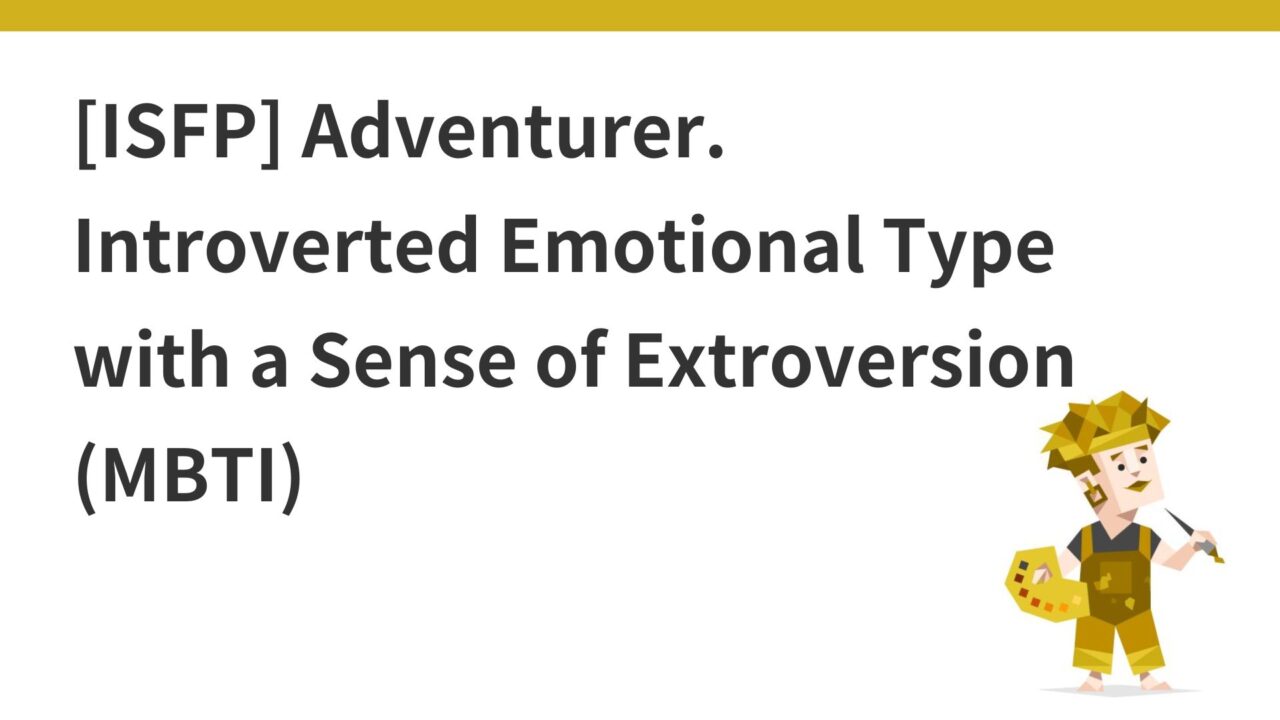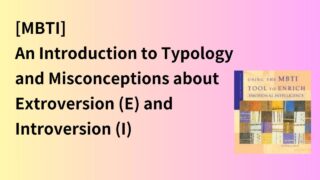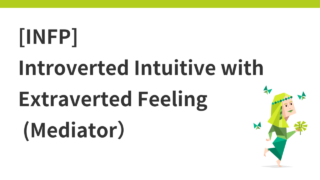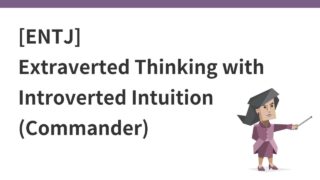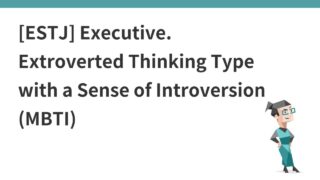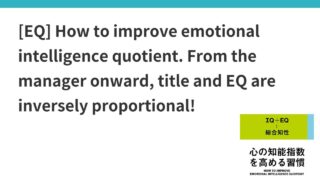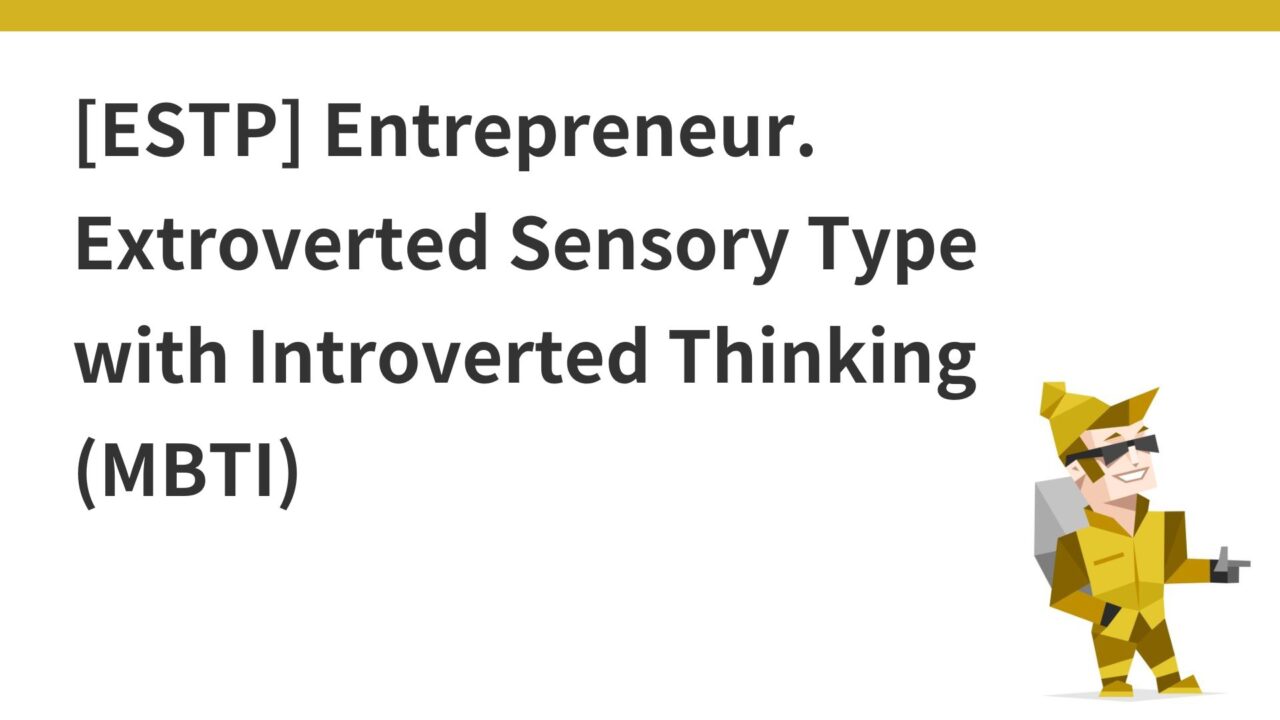- Introduction.
- Public Impressions of the ISFP
- Fi-Se: introverted emotional type with extroverted sensation
- Characteristics and decision-making process for primary and auxiliary functions
- Difference between ISFP and INFP
- Impressions of the ISFP’s surroundings
- To reinforce extroverted thinking (Te) of inferior functions
- Communication Features
- Reactions during stress and points for improvement
Introduction.
I will summarize the following perspectives on each MBTI personality type.
- Public Impressions
- Characteristics of the primary and auxiliary functions and the decision-making process
- Impression to the surroundings
- Inferior Functions and How to Enhance Inferior Functions
- Communication Features
- Reactions during stress and points for improvement
In this issue, we discuss the ISFP.
Public Impressions of the ISFP
If you Google ISFP, related searches include “ISFP adventure,” “ISFP art,” “ISFP artist,” and “ISFP no artistic sense.”
Described as “adventurous,” celebrities and characters include Abilil Rabin, Britney Spears, and Michael Jackson.
Fi-Se: introverted emotional type with extroverted sensation
Cognitive functions of the ISFP are in order of development as follows
- Primary function (the function you are most aware of): introverted affect (Fi)
- Auxiliary functions (functions that function well but are difficult to notice by themselves): extroverted sensation (Se)
- Third function: introverted intuition (Ni)
- Inferior function: extroverted thinking (Te)
The following is a brief description of how each cognitive function affects an individual’s perception and behavior
| cognitive function | Inward (i) | Outgoing (e) |
| Intuition (N) | Pattern recognition – inner insights and future predictions | Explore new possibilities – ideas and abstract concepts |
| Thinking (T) | Logical analysis – building internal theories and organizing thoughts | Objective judgment – decision making for efficiency and fairness |
| Emotion (F) | Deep empathy – a deep understanding of personal feelings and values | Social harmony – forming emotional connections with others |
| Sensation (S) | Details of reality – reflection of inner concrete memories and experiences | Actual experience – direct interaction and action with the outside world |
Fi-Se: Judgments are made based on one’s feelings and values from information obtained through the five senses.
Characteristics and decision-making process for primary and auxiliary functions
Introverted affect (Fi): making decisions based on one’s feelings and values
The main function of ISFPs, introverted affect (Fi), is deeply rooted in personal values and emotions; Fi is the function of making decisions based on an individual’s internal ethics and values; ISFPs place great importance on their own feelings and values and judge things right or wrong or favorable or unfavorable based on internal criteria.
Extroverted sense (Se): realistic responsiveness
The auxiliary function, extraverted senses (Se), is sensitive to concrete facts and circumstances of reality; ISFPs emphasize direct experience through the senses and react quickly to concrete information and changes in the real world. This allows them to take practical and immediate action.
When an ISFP takes on a new project, he or she first assesses whether the project is consistent with his or her values and feelings. Internally confirm whether the project is meaningful to you and whether you want to do it. Once you determine that the project is consistent with your values, move on to specific actions. Follow realistic steps to move the project forward. Focus on the task at hand while paying attention to the details.
ISFPs are confident in their ability to act immediately in a practical manner without hesitation but are often not confident in their ability to transfer what they currently have to a new area.
In addition, for empathy, they are aware of their own needs and the personal needs and emotions of others, but do not show them outwardly. They show empathy by performing the task of caring for them in a specific and concrete way.
Difference between ISFP and INFP
Both ISTPs and INFPs are logical and analytical in nature because they both have introverted affect (Fi) as their primary function, but due to differences in auxiliary functions, they have different decision-making processes: ISFPs focus on realistic and concrete responses, while INFPs explore abstract and future-oriented possibilities.
ISFPs act on concrete information obtained through the five senses, while INFPs prefer a theoretical and abstract approach, emphasizing the expansion of ideas and possibilities.
Impressions of the ISFP’s surroundings
- Kind and compassionate: ISFPs are very sensitive to the feelings and needs of others and act in a compassionate manner.
- Excellent aesthetic sense: ISFPs have a high sensitivity to art and natural beauty. They often enjoy beautiful things and creative activities.
- Practical and realistic: Focuses on concrete actions and is good at finding realistic solutions. Adaptable and flexible to the situation at hand.
- Free-spirited and original: Prefer to live a free and original life according to their own values. Has his/her own style and way of thinking.
- Lacks decisiveness: may take a long time to make decisions because they are based on emotions. May procrastinate on important decisions.
- Can appear self-centered: too focused on their own values, they may appear indifferent to the opinions and needs of others.
- Lack of planning: Because of their focus on the real moment, they are not good at making long-range plans. They often act haphazardly.
I don’t have any personal impressions about the ISFP because no one around me can come up with a quick idea on the ISFP.
However, he tends to be uncomfortable with conflict with others and tends to go along with those around him, but he also has the image of a free-spirited artist with a seemingly contradictory pace.
To reinforce extroverted thinking (Te) of inferior functions
ISFPs have relatively the least developed extroverted thinking (Te), a recessive function.
This function focuses on using objective data and logic to evaluate things and achieve goals in an efficient and practical manner.
ISFPs may find it difficult to make decisions based on objective data and logical analysis because emotion-based decision making takes precedence.
Planning and goal-setting exercises
Practice making concrete action plans, starting with short-term goals; develop the habit of systematic action by using to-do lists to prioritize and carry out daily tasks.
Strengthen logical thinking
Practice making decisions based on data and facts, not just feelings. For example, listing the advantages and disadvantages of a decision. Develop logical analysis and critical thinking skills by objectively evaluating your own ideas and considering other points of view.
Adoption of efficient work habits
Find ways to use time efficiently by trying the Pomodoro Technique, which uses a timer to work while taking breaks at regular intervals; use tools such as Trello and Asana to visually manage projects and track progress; and use the Pomodoro Technique to create a timeline for your work.
What we need to learn to respect different types
The types with the most developed extroverted thinking (Te) are ESTJs and ENTJs, who are very sensitive to objective data and efficiency, and who emphasize, or rather naturally do, organization and planning.
The ESTJ and ENTJ’s emphasis on realistic perspectives and efficiency may be helpful in striking a balance, and there are many references to this.
ISFPs need to learn to respect different types, that kindness and conviction alone may not be enough to get people to change their behavior or to resolve situations in a reasonable way, and that sometimes a firm attitude and questioning can be helpful.
Communication Features
Kind and considerate.
- ISFPs are sensitive to the feelings of others and treat them with kindness and compassion. They take pleasure in understanding and supporting the feelings of others.
Speak from concrete facts and senses
- We base our discussions on concrete facts and sensations of reality. Emphasizes concrete experiences and observations rather than abstract discussions. Sample line: “Yesterday’s sunset was really beautiful.”
Quiet and discreet communication
- An introvert by nature, he is a quiet and reserved communicator. He prefers one-on-one interactions rather than speaking in front of large groups.
avoid conflict
- Tend to avoid confrontation and conflict, prefer peaceful resolution. Respects the other person’s opinion and discusses things peacefully.
Pay attention to details
- Often pays attention to details and pays attention to details. May notice and point out areas that are often overlooked.
Reactions during stress and points for improvement
When exposed to stress, ISFP can trigger a series of typical reactions, as the primary function, introverted affect (Fi), is over-expressed, and extroverted thinking (Te), an inferior function that is usually under-used, surfaces.
Feel disgusted and upset when receiving negative feedback or when unable to collaborate with others.
Reactions under stress
- Excessive Self-Introspection: when introverted affect (Fi) is excessive, one goes deep into one’s inner self and becomes overly reflective about past failures and negative emotions. Self-blame and low self-esteem often occur.
- Emotional outbursts: Normally calm and suppressing emotions, when stress reaches a limit, they become uncontrollable and may erupt in anger, sadness, or other emotions all at once.
- Impulsive behavior: unhealthy expression of extroverted thinking (Te) in the inferior function may lead to impulsive and extreme behavior. They often engage in temporary pleasures to escape stress, such as excessive shopping, overeating, and being critical of their surroundings.
- Excessive attachment to freedom: ISFPs are by nature very liberty-oriented in nature, but when this is over-expressed, they can easily disdain the expectations and social constraints of others and engage in escapist behavior out of a desire to “not be constrained.”
Key Points for Improvement
- Healthy processing of emotions: Instead of keeping emotions bottled up inside, develop the habit of processing emotions in a healthy way by talking to someone you trust on a regular basis. Writing down emotions in a journal is also helpful.
Click here for specific instructions on how to keep an emotional diary.
- Pay attention to reality: Practice mindfulness or meditation and pay attention to the present moment. This frees us from excessive introspection and negative emotions and allows us to focus on reality.
- Planned behavior: practice making and carrying out small plans in daily life to gradually develop extroverted thinking (Te) of inferior functions; utilize to-do lists and schedules to manage tasks in an organized manner; reduce stress by managing tasks in an organized manner; use a variety of strategies to help the patient develop a sense of self-worth; use a variety of strategies to help the patient develop a sense of self-worth; use a variety of strategies to help the patient develop a sense of self-worth.
- Increase self-esteem: be aware of your values and positive evaluation of what you have accomplished so that your self-esteem does not decline. It is important to engage in positive self-dialogue and have a habit of encouraging oneself.
